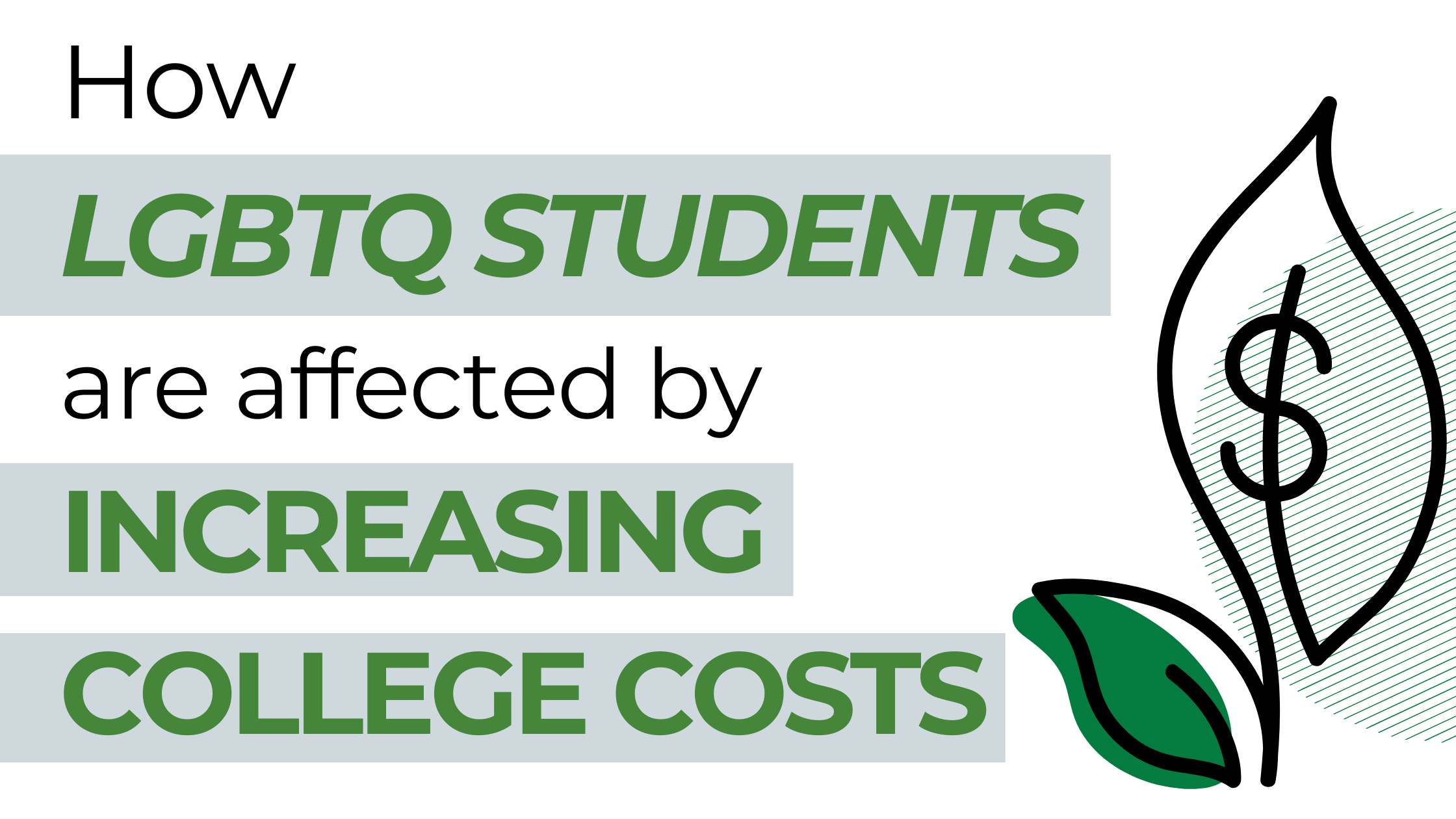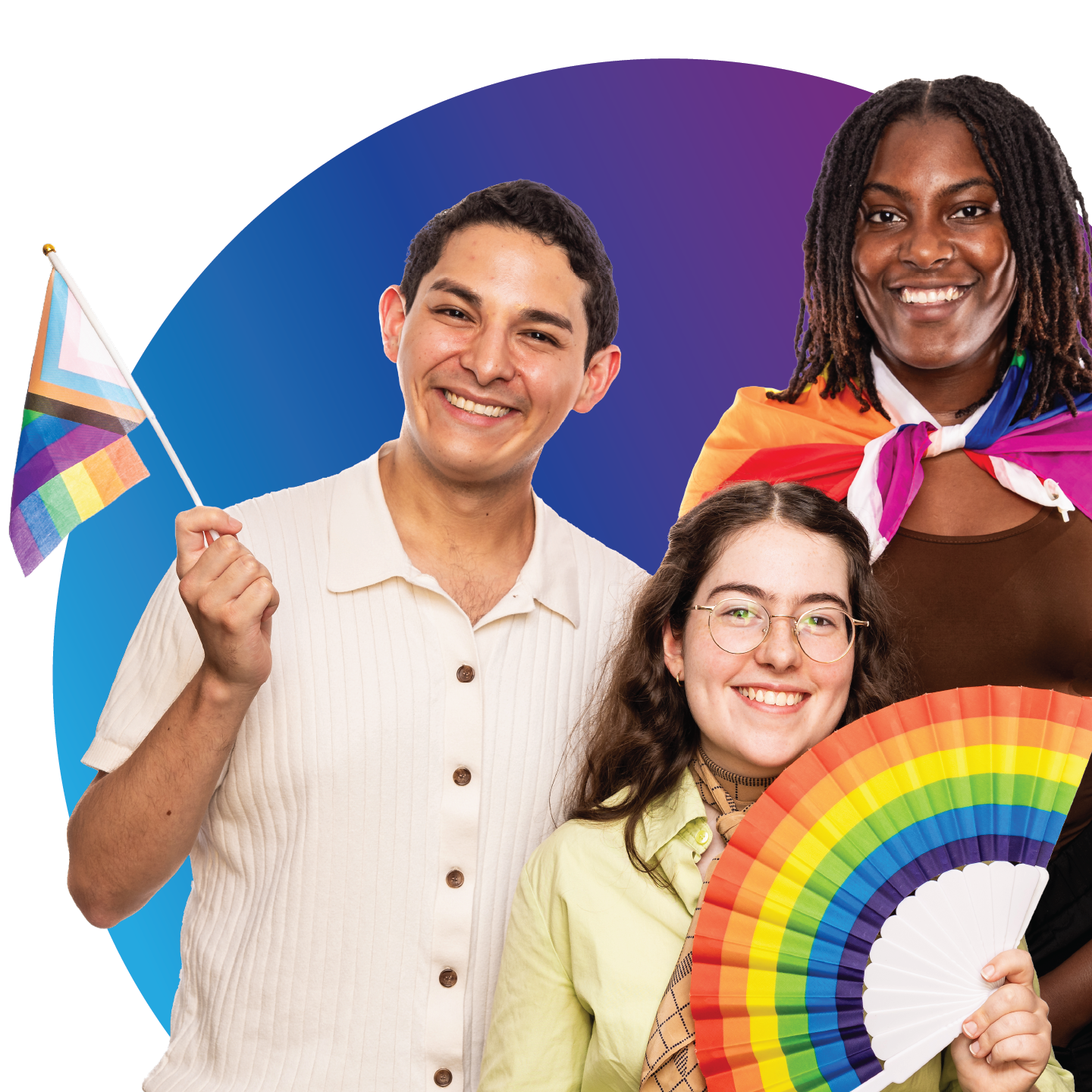Challenging School Policies and Decisions

Updated March 2025
Despite great strides in LGBTQ+ belonging in recent years at college campuses, nearly one-third of LGBTQ+ students still experience bullying, harassment, or assault at college, according to our report. Less than half of LGBTQ+ students say that their universities have resources for LGBTQ+ students, in particular, transgender students’ resources such as all-gender bathrooms.
If you are seeking to make your campus safer for yourself and LGBTQ+ peers today and in the future, part of this change may mean altering campus policies. These tips to challenge higher education policies come from LGBTQ+ students who have been there. Use these and many resources to improve the services and safety of LGBTQ+ students on your campus.
KNOW YOUR RIGHTS
The First Amendment protects people’s rights to free speech, expression, press, and assembly, as well as the right to petition the government. However, public and private colleges and universities are held to different legal standards when setting internal regulations for First Amendment rights on campus.
Some local and state laws directly prohibit schools from offering classes and services with LGBTQ+-related content.
Here are some guides to LGBTQ+ student rights on campus. Remember that it is essential to know your school’s specific free speech policies, usually found on your university’s website.
- Campus Free Speech Guide | PEN America
- Transgender Students at Colleges and Universities | Lambda Legal
- LGBTQ+ Youth Rights | Southern Poverty Law Center
BUILD COMMUNITY
-
Building an LGBTQ+ and ally student group can help LGBTQ+ students feel supported and empowered to make changes on campus. Read our Building LGBTQ+ Community resource for tips to help guide your community-building journey.
- Go to community events, make friends with other LGBTQ+ students, and join affinity groups. The more connected you are to the community, the bigger your voice becomes when you seek to improve your school.
- Focus on what your specific community needs. Make sure your decisions to challenge school policy are based on issues agreed upon by a group of LGBTQ+ students with varied backgrounds, experiences, and perspectives.
- Volunteering at your school or community LGBTQ+ or support center is a great way to see what programs, organizations, and services you can utilize or be involved in to help better your campus and community.
- Find an LGBTQ+ center at your school via the Consortium of Higher Education LGBT Resource Professionals.
- Find an LGBTQ+ center at your school via the Consortium of Higher Education LGBT Resource Professionals.
- Volunteering at your school or community LGBTQ+ or support center is a great way to see what programs, organizations, and services you can utilize or be involved in to help better your campus and community.
- Strengthen your network by building coalitions with student organizations that may serve different communities but share your values.
- See the Campaign Workshop’s guide to building coalitions for more information.
“Build a team. I owe everything to the people I have had the privilege of working with." - Sofia, Point Scholar
FIND ALLIED FACULTY AND UNIVERSITY LEADERSHIP
- Find and recruit faculty who are allies and are willing to open a dialogue with university administration on issues.
- Ask supportive faculty and administrators about how university context, history, or other factors could affect your goals. Have past student organizations lobbied for the same thing? Are university leaders’ decisions constrained by state laws? Which university offices might want to support your ideas and why?
-
- Read how faculty, staff, and students can work together in PEN America’s Campus Free Speech Guide and Rutgers toolkit for campus organizers.
-
"There are always teachers who feel strongly about the same causes as you. Talk to those people about opportunities at school where you can bring awareness. " - Emily, Point Alum.
- Network with university leadership through informational interviews – have friends in power before you need to challenge a policy, decision, or mandate.
- Read the Yale Office of Career Strategy’s guide to informational interviewing for tips.
- Read the Yale Office of Career Strategy’s guide to informational interviewing for tips.
- Get the support of your student government. Make sure student government leaders are briefed on your issues and ready to speak when they next meet with university leaders like the president, provost, or dean of students. See HRC’s resource on how to pass a resolution for more information.
- Have tough conversations with university staff and leadership constructively. Learn how to engage in constructive conversations with someone whose beliefs differ from your own.
- Learning how to articulate your goals for making your school a safer place for LGBTQ+ students and positioning yourself as a knowledgeable resource within the community goes a long way towards beginning to dismantle challenges at school.
“People with this skill have learned, through difficult practice, how to listen and draw insight even from arguments they disagree with. They can recognize that a conversation ending in dissension simply means more time to accumulate further rationales for the next encounter. Soon enough, you will find educating others in your everyday life…to be an effortless act.” - Ari, Point Alum.
SPEAK OUT
- Write op-eds in your school newspaper to influence public opinion and push for a proposed change with actionable steps.
- See How to Write an Op-Ed from the National Organization for Women for a few ideas to get started.
- See How to Write an Op-Ed from the National Organization for Women for a few ideas to get started.
- Attend university town halls at any given opportunity to ask questions and broadcast your ideas.
- Plan events, share ideas, and promote petitions via social media.
- Once you have become engaged in changemaking, encourage others to do the same. Leaders are those who are just as determined to mobilize and empower their peers to fight for change as they are determined to make that change themselves: “pay it forward and pay it back.” Pass down those opportunities that you found valuable to continue this critical cycle of growth, empowerment, and action.
“Never underestimate the power of your voice. Whatever you say, chances are someone will listen to you. And even if they don’t, you may instill an idea or concept in their mind and plant the seeds for understanding.” - Felix, Point Scholar.
SELF-CARE
- Make self-care a priority. Here are a few resources about how to take care of yourself as a changemaker:
-
- Rest for Resistance
-
-
-
- For more resources for LGBTQ+ students, visit Purdue Global.
-
"It's easy to get overwhelmed by social media and the onslaught of bad news. Try to focus on cultivating your own garden and doing something in your community that uses your unique gifts to make an impact. Change starts in ourselves, then our families, then our communities, then the world!" - Sydney Rinehart, Point Alum.
"Love yourself! This is my favorite motto and what helped me carry myself on despite the adversity. The moment students learn how to practice self-love will be the moment they will naturally make a difference at their schools for themselves and the different communities in their surroundings." - Luis Paulino, Point Alum.
Student Words of Wisdom: Insights from LGBTQ+ Student Changemakers
"I got my university to put students' preferred names on their degrees instead of defaulting to their birth names to ensure that students who haven't been able to go through the name change process can still have the correct name read and printed. I went through my Registrar's office and went through multiple meetings over the course of a few months to enact this change in time for graduation this past May!" - Jo, Point Scholar
“I've had many conversations with teachers about how to support and highlight LGBTQ+ voices and identities. These conversations are often initiated by faculty once you show yourself to be open, kind, and growth-oriented. I've helped teachers understand, navigate, and use neo-pronouns within the classroom, helped get more access to gender-neutral restrooms, and increased in-school access to sexual health aids, all by engaging in respectful conversations with teachers and admin. Sometimes all it takes is confidence and faith in the good intentions of my community." - Cara, Point Scholar
Related Posts
August 10, 2023, teampoint

High Price of Higher Education
The price of higher education is increasing and the cost of denying access to those who want to...
October 31, 2022, Point Foundation

Building LGBTQ+ Community on Campus
DOWNLOAD THE RESOURCE Updated March 2025 Community is a powerful tool for belonging. Building an...
October 22, 2024, Point Foundation

LGBTQ+ and Ally Students In Higher Education: Challenges And Support
DOWNLOAD RESOURCE DOWNLOAD ONE PAGER Updated October 2025 THE CURRENT ENVIRONMENT FOR LGBTQ+ AND...